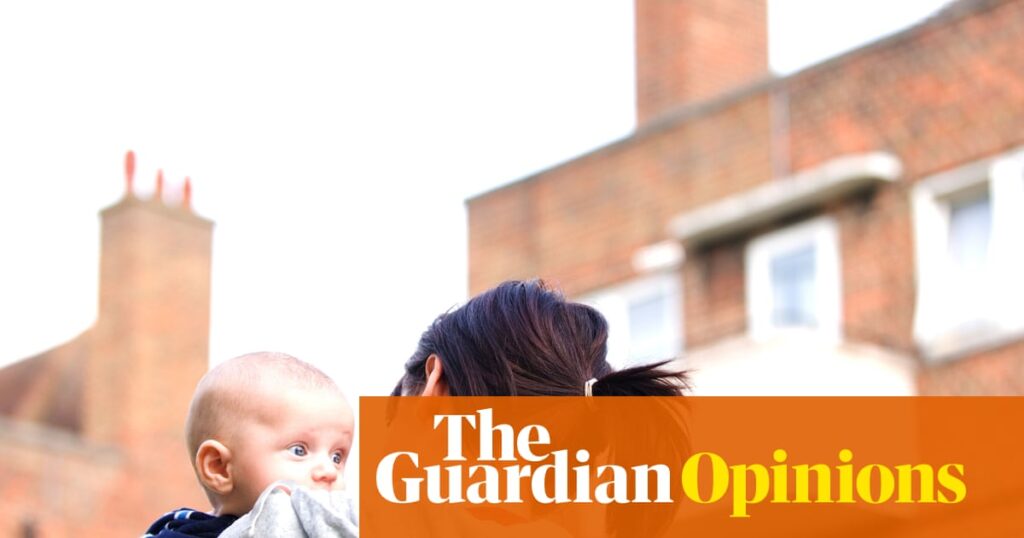Understanding the Urgency of Maternal Mental Health
Two distressing statistics highlight the issue: 1) Suicide ranks as the top cause of maternal death from six weeks to one year postpartum, and 2) The UK has a mere 22 mother and baby units, with none located in Northern Ireland.
The Crisis in Perinatal Mental Health Services
Perinatal mental health issues, which are among the major complications during pregnancy, are back in the spotlight. Services are crumbling under pressure, creating inequalities in access based on location, with women facing tragic outcomes as a result. Labour MP Laura Kyrke-Smith has shared an emotional account of her friend Sophie, who tragically took her life just ten weeks after welcoming her third child. Sophie struggled with anxiety, especially regarding feeding her newborn, and although she visited the A&E, it remains uncertain if healthcare professionals recognized her risk factors. Her friend now wonders if anyone ever checked in on Sophie’s wellbeing, raising questions about the support structures available to mothers in distress.
The Need for Comprehensive Monitoring
During pregnancy, women undergo extensive monitoring for physical health complications, averaging 16 interactions with healthcare professionals. They are assessed through measurements, scans, and various tests for conditions like pre-eclampsia and gestational diabetes. However, inquiries regarding emotional wellbeing often fall short. While health visitors and GPs should assess both the baby’s health and the mother’s condition postpartum, this process can appear more like a bureaucratic checklist than genuine care. The quality and availability of support vary dramatically across regions.
Voices for Change
The Maternal Mental Health Alliance, alongside the Royal College of Midwives, has identified glaring disparities in care and delays in accessing potentially life-saving support. Advocates, including Kyrke-Smith, aim to integrate mental health services seamlessly into standard maternity care. Despite improvements such as designated mental health midwife positions, there remains an urgent need for increased funding and staffing.
Personal Experiences and Challenges
As a mother with firsthand experience navigating the perinatal mental health landscape, I’ve faced numerous hurdles. I’ve walked through deteriorating temporary facilities, experienced the pain of being on hold while in distress, and grappled with the stigma that sometimes prevents women from seeking help during what is typically deemed a joyous period. In my case, it took three referrals—two from a hospital consultant and one from a dedicated health visitor—to secure the specialized assistance I needed.
The Threshold for Support
The criteria for referrals are understandably high, yet arguably too stringent. Services are stretched so thin that many might feel unworthy of care, often thinking, “There must be others who need it more.” During times of critical need and long-standing underfunding, the idea of preventative maternal mental health care feels more like an added luxury, even though early support can prevent crises after delivery.
The Experience of Gratitude Amidst Challenges
I count myself fortunate for having received remarkable care, particularly from a mental health nurse who provided home visits and consistent communication. Sadly, many mothers I’ve encountered have endured their struggles in silence, later reflecting, “I think I had postnatal depression,” or “The thoughts I had weren’t normal.” It’s essential to help women and their families recognize when extra support is necessary and reassure them they deserve help. While some healthcare trusts have begun to implement protocols for checking in on maternal wellbeing, this practice should be universally adopted.
Bridging the Gaps in Care
While some charities attempt to fill existing gaps, many women need more comprehensive care than what can be provided through volunteer-led free counseling. A personal account comes from a friend who transitioned from London to Somerset; after receiving excellent care during her first twin pregnancy in Islington, she found herself relying on costly private therapy during her second pregnancy, despite providing her medical history to health professionals.
Confronting the Stigma
This disheartening reality suggests that even those who advocate fiercely for themselves can face obstacles in obtaining support. What hope remains for women who feel undeserving, are vulnerable, or might not recognize their own need for help?
The Importance of Holistic Support
The story surrounding Sophie is rife with heartbreaking details, especially regarding her struggles with feeding. Kyrke-Smith expressed uncertainty about whether conversations focused on the baby’s feeding took into account her friend’s mental health needs. Following my own experiences, I’ve encountered mental health professionals who believe the NHS’s strict breastfeeding policies may clash with safeguarding women’s mental health. A 2022 study in Nature also cautioned that policies promoting exclusive breastfeeding might exacerbate adverse maternal mental health outcomes. A truly supportive approach towards motherhood should prioritize the mental health of mothers alongside the well-being of their babies.
Call for Action
I’m encouraged that discussions surrounding maternal mental health are becoming more prevalent, and initiatives like the introduction of specialist mental health midwives represent steps in the right direction. Still, we urgently need increased funding, staffing, education, monitoring, data collection, and outreach efforts. One in five women experiences a mental health condition in the perinatal period. When will we prioritize the emotional wellbeing of mothers and ensure they are not left to endure their struggles alone?
If you have thoughts on the issues raised in this article, consider sharing your perspective in a response of up to 300 words via email for potential publication in our letters section.


